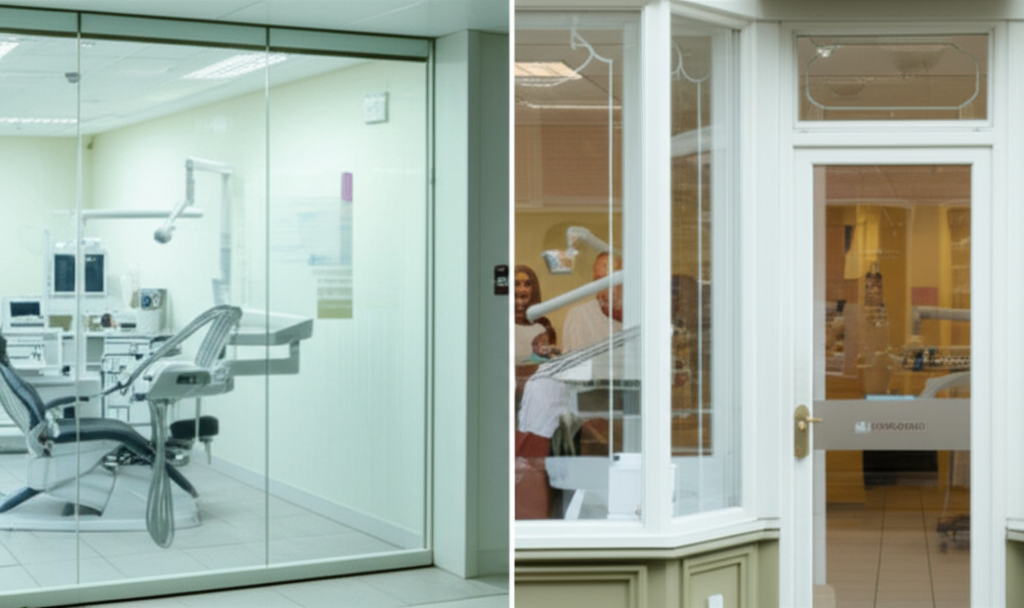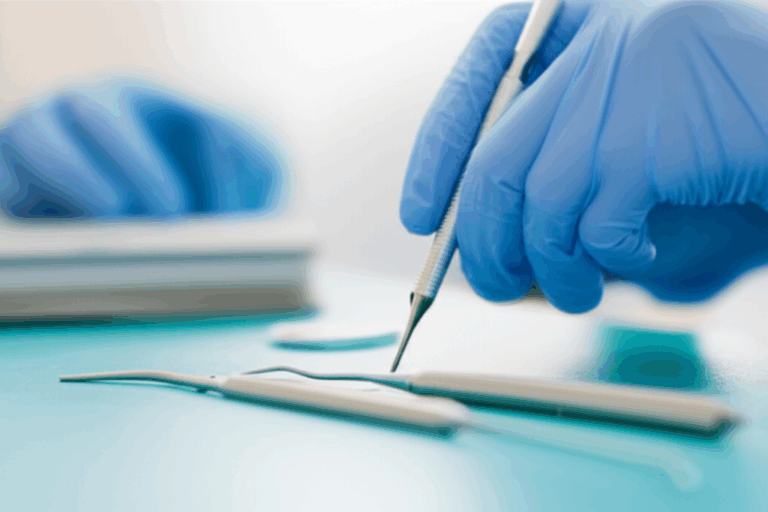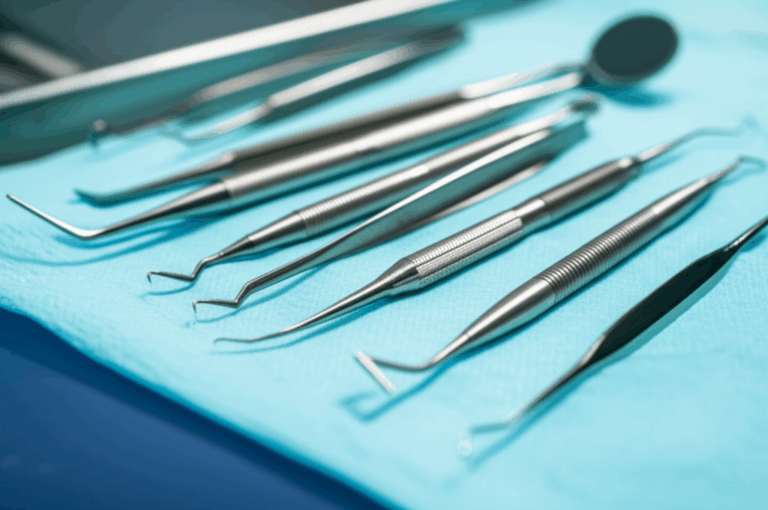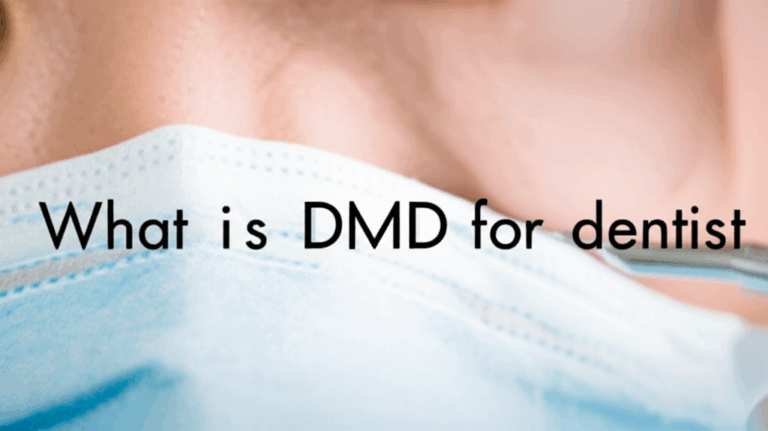
How to Compare Dentists: My Ultimate Guide to Finding the Right Fit
Table of Contents
- Professional Qualifications & Experience
- Services Offered & Technology
- Location, Office Hours & Accessibility
- Cost, Insurance & Payment Options
- Patient Reviews & Reputation
- Office Environment & Staff Demeanor
- Communication Style & Patient Education
- Emergency Protocols & Follow-Up Care
- The “Feel” Factor
Introduction: Why Your Dentist Choice Matters (And How This Guide Helps)
Honestly—picking a dentist isn’t as simple as you might think. It’s not like picking where to get dinner or which movie to watch. Your dental health touches everything from how you feel about your smile to your overall health. When I was looking for a new dentist, I felt lost. There were too many choices and not enough helpful info. Sure, I wanted someone skilled, but I also wanted a friendly, open place. That struggle is why I put together this guide.
I made this for people who, like me, want a simple plan instead of guessing. If you’re tired of rolling the dice and want to make a smart, confident call, stick with me. I’ll lay out what’s really important and give you tips to spot what’s best for you.
Essential Criteria for Comparing Dentists
When I started looking, I saw that most people just pick the nearest office or take the first slot that’s open. That’s not always a good idea! The right dentist can make a huge difference. Here’s what I wish I had known from day one.
Professional Qualifications & Experience
First up—education and experience are a big deal. Make sure your dentist has a DDS (Doctor of Dental Surgery) or DMD (Doctor of Medicine in Dentistry) degree. But a diploma doesn’t tell you everything. Is the dentist board-certified? Are they part of trusted groups like the American Dental Association (ADA)? Ask if they keep learning with new classes—dental care changes a lot these days. How long they’ve been working matters too. If I needed something like cosmetic work, I felt better going to a dentist who had lots of years doing it rather than someone just starting out.
Tip: When I visited, I’d ask things like, “How long have you practiced?” and “What work do you do the most?” Honest, relaxed answers always felt best.
Services Offered & Technology
Not all dentists do the same stuff. Some just do checkups, cleanings, and fillings. Others are good at things like cosmetic work, braces, or tough jobs like implants. Before comparing offices, I made a list of what I needed—or might need later.
New tools in dentistry can make your visit much easier and better. Things like digital X-rays, cameras for your mouth, and lasers have helped me a lot. If a dentist uses old gear or can’t offer new services, I take that as a warning.
Some dentists work with labs that make things like crowns, veneers, and implants. This can really change how good your fake teeth or repairs look and feel. If you want, ask about their lab partners. Some use high-quality digital dental labs.
Location, Office Hours & Accessibility
This part seems basic, but it’s super important. When my dentist’s office moved far away, quick visits turned into a pain. I look for places with easy parking, close bus stops or subway, and times that work for my schedule (like early mornings or late evenings).
Also, if you or someone in your family has trouble getting around, check for things like ramps or elevators. Some offices talk about how easy they are to access on their websites—if you’re not sure, just ask.
Cost, Insurance & Payment Options
Dental care can cost a lot. One thing I learned—always ask about insurance before you go. Do they take PPO, HMO, or out-of-network? Good offices explain what things will cost and give you a clear, written plan. It helps if they offer payment options too—some let you pay over time or work with companies like CareCredit.
A tip from me: always get a printed quote before you agree to big work. Once, I saved a lot of stress by doing just this.
Patient Reviews & Reputation
Reading reviews is a smart move, but read a bunch—not just one or two. Whenever I look up “dentist near me,” places like Google and Yelp are where I start. I check how many reviews they have, but also what they say—do people keep saying things like “nice staff” or “didn’t hurt”?
You can also double-check with places like the Better Business Bureau (BBB) or see if they have awards. If you spot a bad review, see how the office replied. If the dentist answers with care and tries to help, I trust them more.
Beyond the Basics: What to Look For During Your Research & Visit
After you have a short list, it’s time for some real-life detective work. Looking up info helps, but seeing it for yourself at a visit is the real test.
Office Environment & Staff Demeanor
The first thing I notice when I walk in is how the place feels. Is it clean? Some offices are super tidy and welcoming from the moment you step inside. Kind, smiling staff at the desk make a big difference. If a place is messy or if the staff doesn’t seem to care, that’s always a turn-off.
How the staff acts is key. The people cleaning your teeth or helping the dentist shouldn’t just rush—they should take time and explain what they’re doing. There was a hygienist once who talked me through every tool, and that helped my nerves a lot.
Some places even offer things to make you calmer, like music, movies, or gentle sedation if you’re nervous. If you want these things, ask ahead of time.
Communication Style & Patient Education
How the dentist talks to you matters a lot. I want them to explain what they’re doing in plain English, go over what’s good or bad about every option, and make me part of the plan. The best ones answer every question—even the “dumb” ones—without any sign of being bothered. I love it when a dentist draws a picture or uses a small camera to show me what they see.
If you leave feeling confused, it’s probably time to keep looking.
Patient teaching is also a plus. My dentist takes extra time to talk about how to care for my teeth at home, and gives me tips for brushing and flossing. This kind of advice can help your whole health, not just your teeth.
Emergency Protocols & Follow-Up Care
Stuff goes wrong sometimes—a chipped tooth or sudden pain. Does your dentist have a plan for emergencies? Can you call or message them after hours? I never thought about this until I really needed help late on a Sunday. Now it’s one of the first things I check.
If I have a big treatment, I expect a check-up call or text. A good dentist wants to make sure you’re getting better. Some offices use online patient portals, which are super handy.
The “Feel” Factor
In the end, trust your gut. Do you feel rushed? Judged? Or do you feel like people care about you? That feeling of “this just feels right” really does matter. If you can’t get comfy in the chair, don’t settle—keep looking for someone who makes you feel safe.
Practical Steps to Compare Dentists Effectively
So, how do you go from checking things out to making a pick? Here’s my simple checklist—keeps me organized every time.
Step 1: Make a List of Dentists
First, I ask friends, family, and even my regular doctor for names. When I moved to a new place, these suggestions really helped.
To make my list bigger, I use search engines and online directories. Just because a dentist shows up first doesn’t mean they’re perfect for you, but it’s a starting point.
Step 2: Check Them Out Online
I look at each dentist’s website. I want to know what services they offer, what their team is like, and how they treat patients. Are there pictures of the office? Do they talk about using up-to-date equipment or mention partners like a top implant dental laboratory?
I also go through reviews to spot any trends—are there lots of happy comments or do people complain about the same things a lot?
Step 3: Call Their Offices (Questions You Should Ask)
A quick phone call tells me a bunch. I ask:
- Do you take my insurance? How do you handle if I’m out-of-network?
- Are there deals or special prices for first-time patients?
- What should I do if I have an emergency?
- Do you focus on helping people learn how to care for their teeth?
- If I want something specific—like veneers or a night guard—I ask if they work with a veneer lab.
If whoever answers is kind, listens well, and knows what they’re talking about, that’s a good sign.
Step 4: Go for a First Visit or Consultation
I use this first visit as my chance to check things out. I watch how the staff acts with each other, see if the atmosphere feels rushed or relaxed, and pay attention to how clearly the dentist explains stuff. I look for a clean, well-run office—details matter.
Don’t hold back—ask whatever you need to know.
Step 5: Get Another Opinion If You Need It
When it’s something serious or expensive, I’m never afraid to get another dentist’s advice. Two different dentists sometimes have very different plans. A good dentist won’t try to push you; they’ll support you if you want to double-check.
Making Your Final Decision
After you gather all the info, go over your notes and see how every dentist compares to your top needs. Money is a factor, but so is feeling understood and cared for. I go with my instincts—if I feel good and safe with a dentist and their staff, that’s my pick.
If I’m stuck between two great options, I look for tiny differences—maybe one has easier payment plans, offers more on-site services, or has awesome reviews that just push me over the edge.
Conclusion: Invest Time, Find Your Perfect Dental Partner
Finding the right dentist isn’t super quick, but it’s worth every minute. From my experience, carefully comparing saves you worry, money, and even pain later. Remember: You’re picking someone for the long haul, not just a quick fix. You deserve a dentist who listens and helps you stay healthy.
If you’re starting your search or thinking of changing practices, I hope this guide makes it easier for you. And if you want to learn more about specific treatments or restorations, looking into trusted dental labs can help you understand your choices.
Your smile deserves the best. Don’t rush it. Trust your gut, take your time, and pick the dentist who feels right—your future self will be glad you did.
This guide was checked for accuracy by Dr. Joe Dental, DDS—he’s been a general dentist for 20 years who cares about his patients and loves helping people.








